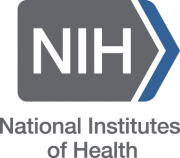Posted on January 23, 2019
Source: NIAID

"An NIH study into how pregnancy affects the body’s processing of drugs for HIV and tuberculosis (TB) in women being treated for HIV infection recently enrolled its 1,001st study participant, enabling investigators to build one of the world’s largest data sets of its kind. The study has generated and published data on more than 20 of the most commonly used HIV drugs, known as antiretrovirals, as well as many commonly prescribed TB therapies and contraceptives used after giving birth. These data have helped provide a foundation for national and international HIV treatment guidelines for women living with HIV who are pregnant or have recently given birth."
'The NIH-funded International Maternal Pediatric Adolescent AIDS Clinical Trials (IMPAACT) Network is conducting the ongoing study, called IMPAACT P1026s, in Botswana, Brazil, South Africa, Thailand, Uganda and the United States. The trial is co-sponsored by NIAID, the Eunice Kennedy Shriver National Institute of Child Health and Human Development, and the National Institute of Mental Health, all part of NIH."
"Pregnant women are usually excluded from the clinical trials that are conducted to bring a new drug to market, yet a woman’s body often processes medications differently during and shortly after pregnancy than at other times due to the biological changes that occur to accommodate pregnancy. As a result, the safety and dosing requirements of a new drug licensed for use by nonpregnant adults may differ for pregnant women. This has been the case for both antiretrovirals and drugs for treating TB, the most common HIV co-infection."